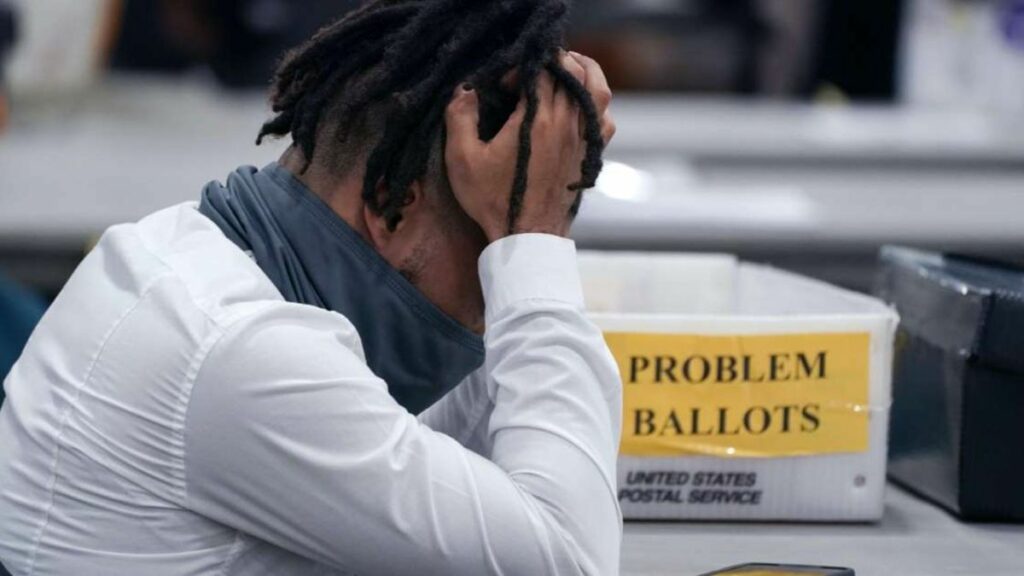Last updated on November 12th, 2020 at 11:04 am
A week after Americans took to the polls for the Presidential election, one thing is crystal clear: this country needs a new method of declaring a winner.
Currently, the American mainstream media projects who has won elections, and they do so before the votes are counted or certified. The problem with this method is twofold. First, media projections can be very, very wrong. Remember Bush v. Gore in 2000, when as many as 10,000 would-be Bush voters didn’t even bother voting because the media had projected Gore to win Florida? To make projections, the media relies on a mix of statistical analyses, exit polling, surveys, vote counts, and other methods. All of these are prone to some level of error or fraud. Exit polling, for example, relies on respondents to tell the truth, and also to participate in the poll. If either one of those requirements isn’t met, you’ve got unreliable data. Throw into the mix the “hidden Trump vote” of those hesitant to admit they’re voting for Trump—in the face of ridicule by family, friends, and mostly the American media—and such methods become even more unreliable than usual.
The second big problem with media projections is that they can, and are, biased. U.K.-based newspaper The Guardian published a piece almost a full month before the election titled, “Will the US media call the right winner on election night? Don’t count on it.” The op-ed was signed by a long list of former presidents of the ASPA, the American Society for Public Administrators, and suggested that media bias and a ratings-based urge to be early predictors both had an undue influence on projections.
Currently, most if not all media outlets are calling Joe Biden the President-Elect. (Biden himself changed his Twitter bio to reflect the new designation.) The game-changing media announcement was that of the Associated Press over the weekend, which royally proclaimed, “On Saturday, Biden captured the presidency when The Associated Press declared him the victor in his native Pennsylvania at 11:25 a.m. EST.” Note the language of that statement. Biden captured the presidency when the AP said he did. Not when all the votes were counted or certified. Not when an appointed board declared him to be so. Not even when a court stepped in and took assessment. When the media said it was so.
But there is reason to be hesitant. In several cases (Georgia and Pennsylvania, for example) there is a less than 1% difference between Biden’s and Trump’s outcomes, and only 99% of votes in, with military and overseas votes still to be counted. Many states have mandatory recounts because a 1-2% margin of error is natural in counting that many votes. Also, there was a glitch in computer software proven in MI, and several other battleground states use the same software. But as of Monday, the media is doing its best to solidify Biden as the President-Elect. President Trump hasn’t conceded, the votes aren’t all tallied, there may be real reason to be concerned about voter fraud, and the Trump campaign is mounting legal efforts in several states. But all media stories on vote counting are at least two days old at this point, and all that a Google news search of “presidential election 2020” reveals are stories of Biden’s plans for Day 1 and coverage of how Biden won in 2020. The media has proclaimed Biden president. It’s time to move on, everybody, and forget the dark days since 2016.
Now, it is very possible that Biden did, in fact, win fair and square. But the fact is that due to changes made in reaction to the COVID-19 pandemic, this election is unprecedented in the number of mail-in ballots and early votes. And what we know of Trump from the 2016 election is that polling was even more unreliable, because people were hesitant to admit they voted for Trump. What Trump’s 2016 victory over Clinton—and the media’s consequent amazement—indicates is that the media really doesn’t understand Americans outside of their narrow, pre-conceived notions based on experiences of the coastal elite.
Another clear lesson from this election is that the media still doesn’t understand Middle America, or rural America, or Southern America. In spite of his brashness, his Twitter posts, and a true leftist witch hunt, Trump performed far, far better in this election that the mainstream media expected him to. Who knows how much better he might have performed if the MSM hadn’t been trying since 2016 to unseat him in 2020? If the Russians try to influence the election, the media calls the results “illegitimate.” When the American media itself conducts an all-out, four-year-long war against Trump in preparation for 2020, it’s labeled “fair and unbiased reporting.”
President Trump is right in one thing. The media has been out to get him, although he didn’t do much to help his cause sometimes. And now, let’s just pretend for a moment that the media is wrong, and the untallied votes aren’t all blue, or there was tampering, and President Trump has won this race. The MSM has already pronounced Biden the president, and if it turns out they’re wrong, they’ve perfectly set the stage for rioting and mass unrest.
There has to be a better way for American elections to be conducted. The 24-hours news cycle isn’t the reliable, unbiased source Americans need in times like this.
